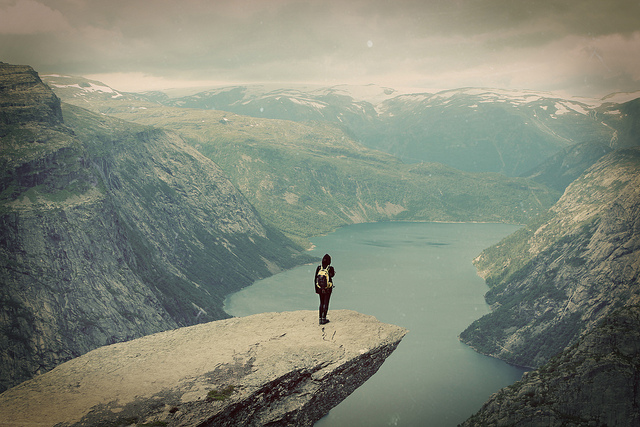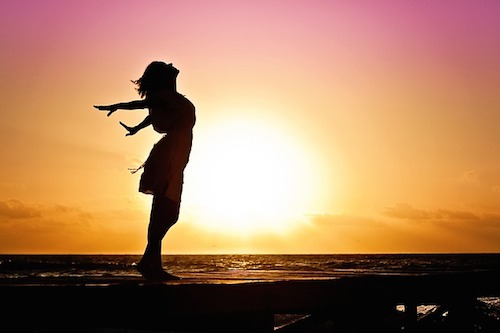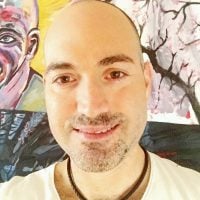
We are born of the Earth, neither of the East nor of the West.
Wisdom is everlasting, never-ending and always changing. The wisdom of the ages is to be cherished and venerated, yet if we cannot filter it through our own internal resources, then we can be easily misled.
Those who stand for nothing will often fall for anything. These are the followers of controlling, macho, fear-dominated ideas, the product of a past (dying) age.
Each generation must reinterpret the old through the lens of new eyes.
How can we understand and re-frame the Eastern approaches versus the Western approaches for spiritual evolution in a modern context?
In terms of advancement, it serves no purpose to compare these approaches in terms of which one is the better pathway. For me, a synthesis makes the most sense as well as meeting my objectives for greater wisdom.
There is an ideal within the Eastern tradition of removing oneself from the world and perfecting oneself, attaining spiritual enlightenment alone, far away from those needing help. For instance, in the Theravada Buddhist tradition, monks spend months isolated and preferably without human contact during the rainy season. The “Rains retreat” as they are known, are a wonderful way to achieve soul purity and elevation. Yet, do have a place in the world within our modern context?
We are responsible for our world and although self-mastery is commendable, it does not serve the other, nor does it achieve the overall goal of collective perfection if we don’t reach out a hand to our fellow human beings.
There are those who need help and I feel a duty to be of service to humankind. How will you know you are perfect if you don’t interact with anyone? Or only interact with others on your own terms?
The secret is in balance, or the “middle path” as taught by Buddha.
What is balance?
All of life is perpetually balanced. The forces of creation hold together this expansive matrix in perfect equilibrium.
The Tao itself teaches that even though nature is composed of opposing positive and negative forces, the polarity itself is surpassed by the Tao, the infinite factor of wisdom. The Tao is the indivisible unity of One. Thus, even though polarity is very much a part of nature, there is also an over-riding intelligence far beyond it.
The life force itself will always come back to its natural shape, when things go out of balance. The over-riding structural matrix exists for an ever-changing and revolving stability.
Death always stands as a counterpart to life, counterbalancing the force of life, to find the perfect equilibrium. New species are born and old species die, new life is created, and old life passes away. Death must exist for life to exist.
These polarities that are part of the natural system do not have to be fully expressed—they can stand as potential forces. For instance, one doesn’t need to experience both happiness and sadness, or love and fear, for them to exist as potentials. Nature’s force is to bring its forces into balance after a storm of releasing. In one’s personal life, the same thing occurs if we surrender and allow it to materialise.
The extreme catharsis of nature’s wrath does not always need to occur in one’s personal life. It is not a definite event. The extreme polarities can exist as a potential like a tsunami exists as a potential. It may occur once in a while, but will not necessarily occur. Some cycles in life are inevitable and unavoidable like the cycle of life and death. What happens in between is largely dependent on many seasonal fluctuations that can be difficult to predict.
The flow of seasons continues to revolve throughout life, as spring follows winter, so too, dawn follows nights—there is an ongoing change.
Our soul path is to understand the seasonal changes and complex chemistry of life, and boldly embark on an evolutionary journey into navigating one’s way through it. We can call upon wisdom to guide us, yet always it is experience that wins out. As learning, experiencing beings, there are fundamental archetypes and personality dimensions we will encounter within the world, and ultimately within ourselves.
The Buddhist concept of dharma is similar to the Chinese “Tao” in accepting all of creation is whole and complete as it is. Thus, there is not a single accident in the entire universe. A grand interplay of cosmic elements combine to create what is manifest. As Westerners, we tend to go through periods when we see ourselves as out of focus, lost, or not living out our purpose. Perhaps this is a misnomer, as winter may be cold but it is never displaced, always acting as a direct counterpart to summer.
 Both Tao and dharma are wide-ranging definitions that accept the nature of “what is” in a relative and absolute sense, and support the implicate order of the universe and those who are in harmony with it.
Both Tao and dharma are wide-ranging definitions that accept the nature of “what is” in a relative and absolute sense, and support the implicate order of the universe and those who are in harmony with it.
All of life is expressing itself fully according to its nature, and within this view, there are no duplicates and no failures. All that is created is unique.
As individuals in this perfect whole, we are all ingredients that perfectly express themselves—every nuance and character contributes to the overall manifestation.
The old seasons are dying to be replaced with a way of reverence and sensitivity to the sacredness of Nature. Wisdom is unshakeable, resonating deeply into the common denominators of all life.
Living in dharma means to live one’s life purpose, bringing forth one’s personality and expressing it in the world. By living in fear, limitation, or otherwise, we are denying the world our one-of-a-kind gifts. So, too, living from the ego denies the full expression of our talents for the benefit of others. The purpose of dharma is to allow the world to evolve to its full potential.
The symphony is created by individual artistry joining together, complementing each other. If there are no spare parts to the universe, then each individual part is needed by the whole—it is necessary, it is wanted. For the whole symphony to vibrate at its most expansive potential, it requires all instruments to play their part. One thing is essential for the greater good—each person must follow their authentic path.
“Let come what comes, let go what goes. See what remains.” ~ Ramana Maharshi
If every person sang their song as Divine particles and instruments of God, the universe would vibrate ecstatically.
Imagine this world—and even better, create it. Your song is waiting to be sung. The world demands that you sing it.
~
Relephant:
4 Ways That Taoism Can Help Us Be Happier.
~
Author: David G Arenson
Editor: Travis May
Photo: Flickr/Thomas Frost Jensen, Wikipedia






Read 0 comments and reply